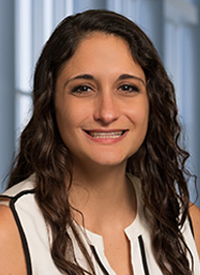Biosimilars Make Routine Prophylaxis With G-CSF Feasible in HER2+ Breast Cancer
The increasing use of biosimilars makes prophylaxis with growth factor more cost effective.
Sarah Kashanian, MD

At the 2023 ASCO Quality Care Symposium, experts shared their perspectives on routine Granulocyte colony-stimulating factor (G-CSF) use for patients with HER2-positive breast cancer receiving TCHP (Docetaxel, carboplatin, trastuzumab [Herceptin], and pertuzumab [Perjeta]).
They noted that at their institution, the rate of patients who experienced febrile neutropenia was less than 20%. The National Comprehensive Cancer Center recommends primary prophylaxis with G-CSF when administering regimens with a 20% of great risk of febrile neutropenia; so by these standards, standard prophylaxis is not necessary.
Regardless, the reduced price of G-CSF that biosimilars have made available make it possible to routinely use prophylaxis with G-CSF without racking up major institutional costs. Consequently, this has become the standard approach at Parkland, where the study authors work.
“Based on this study, we have adopted routine primary prophylaxis with G-CSF in patients receiving TCHP at our safety net system,” Sarah Kashanian, MD, a fellow at the UT Southwestern Medical Center Harold C. Simmons Comprehensive Cancer Center, and coinvestigators wrote in the poster.
Methodology
Investigators reviewed the electronic medical records of those who were treated for HER2-positive breast cancer at their institution between January 1, 2017, and December 31, 2022. They collected data on demographics, treatment history, laboratory values, and treatment-related complications.
The analysis included 171 patients who underwent neoadjuvant, and adjuvant TCHP; 41 patients (24.0%) were given G-CSF as primary prophylaxis, at the discretion of their treating physician.
In contrast, 130 patients (76.0%) did not receive primary prophylaxis. Among these patients, 32.5% (n = 41) later received G-CSF. For those who later received G-CSF, febrile neutropenia, neutropenic treatment delays, and other infections were the most cited reasons.
Key Findings
Ultimately, at their institution, 529 cycles of TCHP had been administered without G-CSF and 372 were administered with G-CSF. Among those who did not receive primary prophylaxis (n = 130), 18.5% (n = 24) developed febrile neutropenia, compared with 2.4% (n = 1) of those who had received prophylaxis (n = 41; P = .011).
Among the 529 cycles without prophylaxis, 4.5% (n = 24) cycles led to a febrile neutropenia complication. Among the cycles with G-CSF (n = 372), 1.1% (n = 4) led to a febrile neutropenia complication.
For the patients who did not receive G-CSF, most episodes (71%) occurred within their first 3 cycles.
Overall, febrile neutropenia incidences resulted in patients staying 150 days in the hospital (median 5 days stay), which cost the hospital $1.2 million in charges (median $36,000 per admission).
Significance
G-CSF prophylaxis can significantly reduce the rate of chemotherapy-related febrile neutropenia. Yet, institutions may have reservations about routine G-CSF prophylaxis because it can also significantly increase cost of care.
Parkland Health, where this study was conducted, is a safety-net system that treats uninsured or underinsured patients in the Dallas area. Many of the patients who receive care at Parkland Health belong to racial and ethnic minority communities.
According to the study authors, 21 episodes of febrile neutropenia could have been saved with universal G-CSF use. This approach would have saved the hospital $1.05 million in hospital admission charges, but cost an additional $1.8 million, according to the average prices for pegfilgrastim between 2017 and 2022.
However, by substituting pegfilgrastim for biosimilars, the estimated cost would be $603,000, according to Medicare Average Sales Price estimated from 2023, justifying routine prophylaxis.
Reference
Kashanian S, Kanjwal S, Brown LS, et al. Growth factor use in breast cancer patients treated with docetaxel, carboplatin, trastuzumab, and pertuzumab (TCHP) regimen: cost implications in a safety-net system. JCO Oncology Practice. 2023;19(supple 11):10. doi:10.1200/OP.2023.19.11_suppl.10


